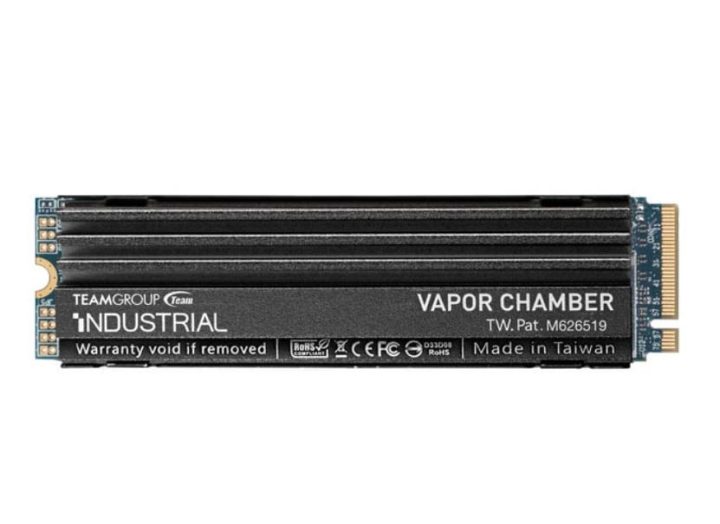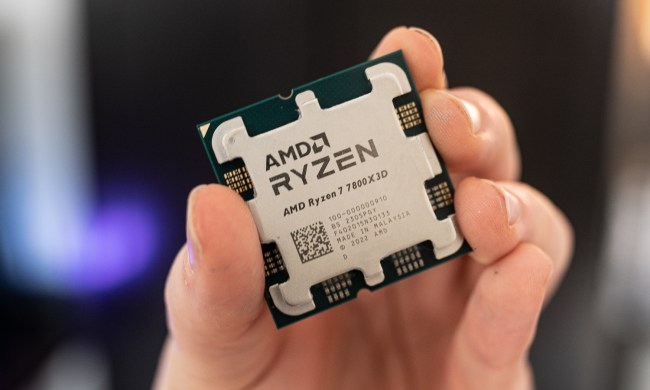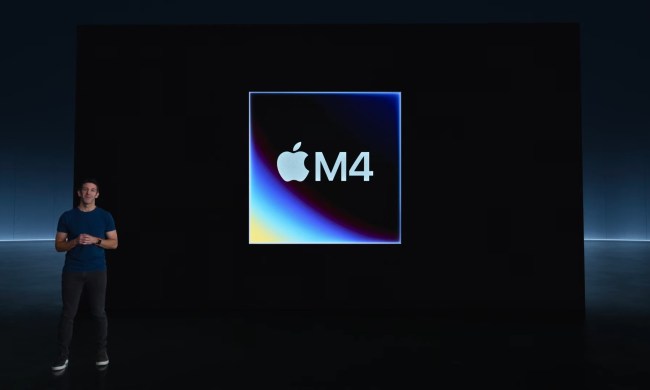Industrial-grade computing now has some help with read/write speeds. Taiwanese company Team Group created an industrial-grade vapor-cooled M.2 SSD with sustained read/write speeds up to 3,500 MB/s.
The N74V-M80 is the world’s first high-performance industrial SSD with a vapor cooling chamber. Of course, vapor cooling itself is not new. Many smartphones use the technology to keep their processors cool, and Samsung will reportedly start using it in consumer laptops.

But those consumer-grade chips are small. The average smartphone UFS 3.0 drive maxes out at under 1,000 MB/s. Laptops and PCs can reach speeds of 2,000 MB/s but don’t expect them to hold that for long. Industrial needs are much different.
According to Tech PowerUp, the new vapor-cooled SSD doesn’t depend on air cooling as with most SSDs. Instead, it uses a tube to transfer cooling liquid to the heat zone, which then vaporizes in a dedicated chamber. The vapor carries heat away from the core through a series of thermal-conductive aluminum fins.
The result is a lack of thermal throttling at high temperatures, and the SSD is able to maintain high read/write speeds of up to 3500 MB/s under sustained workload. For comparison, most air-cooled SSDs throttle their speeds when they get too hot, but this vapor-cooled drive is 75% faster. It can operate in temperatures from -40 F to 185 F (-40 C to +85 C) without slowdown.
It comes in 128 GB, 256 GB, and 512 GB variations and uses TLC Flash, and supports the PCIe Gen 3 interface.
High-performance computing (HPC) needs are growing as industries around the globe turn to automation. Research and medicine depend on HPC to handle vast amounts of data in a timely manner, as do aviation and defense. Industrial-grade computers are under intense load for extended periods of time in all sorts of environments. The Team Group M.2 SSD with vapor cooling is a breakthrough for these industries.
Don’t expect to see a vapor-cooled M.2 SSD in your gaming rig anytime soon, though. This is purely industrial.



